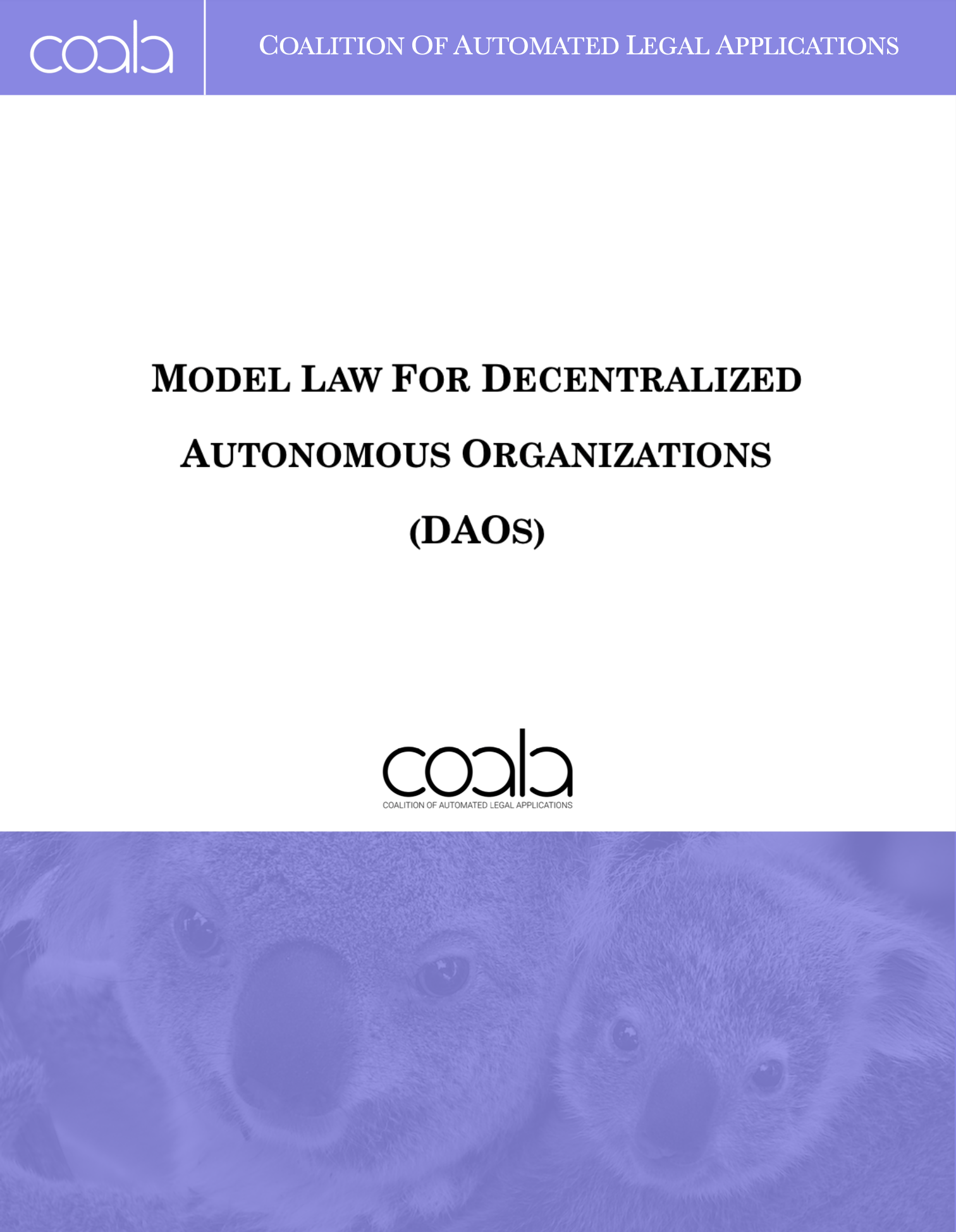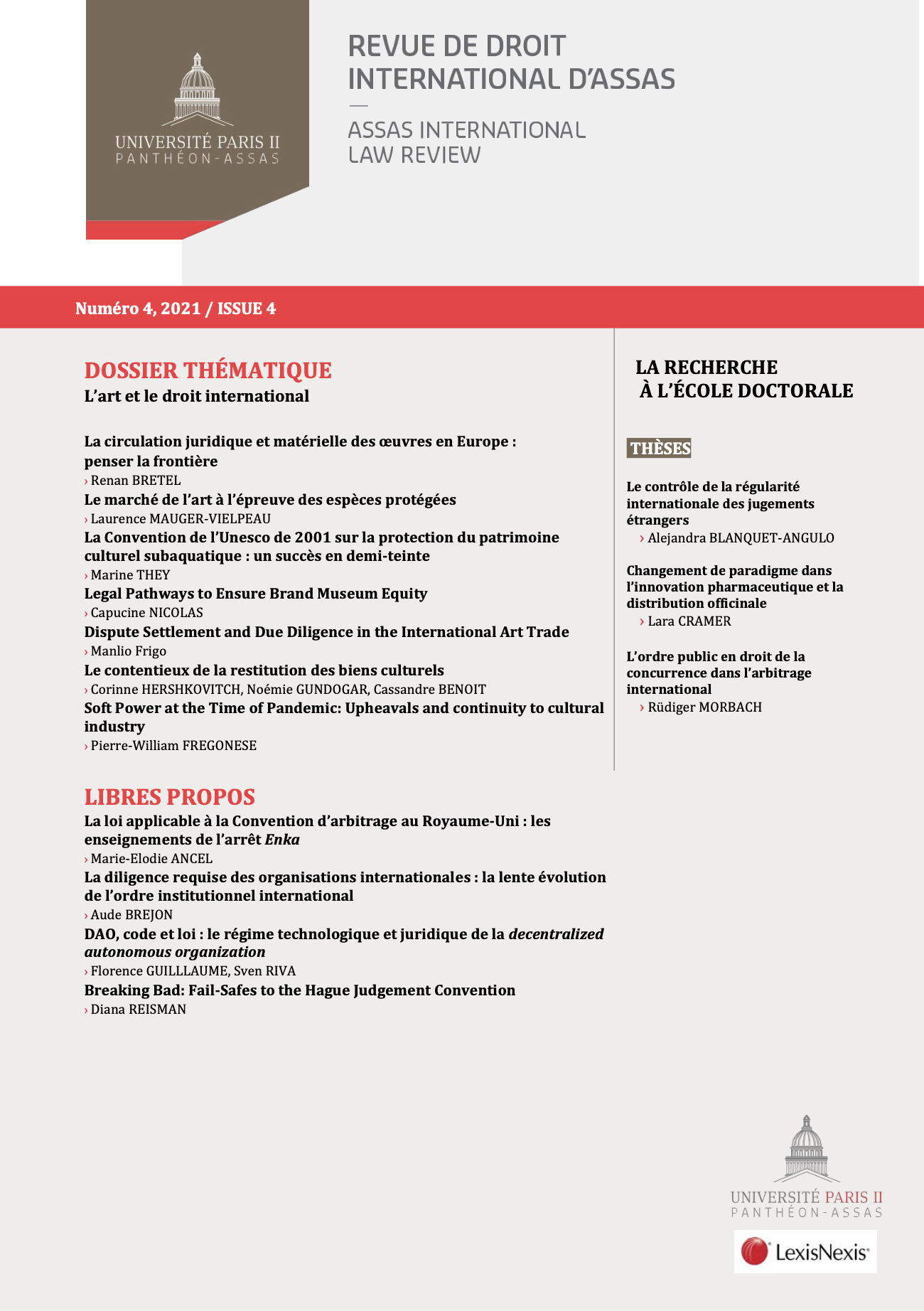DAO – a legal entity from the digital world
Decentralized autonomous organizations (DAOs) are a new form of digital social organization that exist on the blockchain. This type of digital entity allows groups of people to manage crypto assets, in particular cryptocurrencies and non-fungible tokens (NFT), collectively and according to governance rules written on the blockchain in the form of computer code. These rules govern DAOs in the same way as the law and the by-laws govern a company. They define, for example, the nature of the relationships between the members and a DAO, among the members of the DAO themselves, and between the DAO and third parties, but also the purpose of the entity, its governance model, or the share capital of the DAO.
The great novelty introduced by DAOs is their autonomy from private and public institutions, such as banks and state registries. The members of a DAO do not need to register their entity in a state register to validate its existence, nor do they have to open an account with a bank in order to hold assets. Blockchain technology being a ledger, which most importantly incorporates many functionalities, it is that very technology that records the existence of the DAO and provides it with a crypto wallet. DAOs thus escape the control of institutions and the state.
There are currently nearly 200 active DAOs that manage a total of around $14 billion in crypto assets. This astronomical sum reflects the booming sector of decentralized finance (DeFi), which is driven by speculation around the value of bitcoin, ether, and other cryptocurrencies. While DAOs are being commonly used as “legal vehicles” of the blockchain, the legal questions that they raise are nonetheless numerous. Indeed, the vast majority of DAOs exist outside any legal framework: no law governs their organization, their legal nature, or their internal and external relations. This results in great legal uncertainty for the members of DAOs who are subject to an uncertain legal regime by being part of this type of entity, as well as for third parties contracting with DAOs who cannot define with certainty the legal existence of their contracting partner, or even whether someone is bound by the contractual commitment made by the DAO.
Providing a legal scope to DAOs
Betting on the development of the crypto economy, some states have incorporated these new forms of social organization into their law. This is the case, for example, of the states of Vermont and Wyoming in the United States of America, which offer the possibility for a limited liability company (LLC) to put all of its governance on the blockchain and to record the votes of its members on smart contracts stored on the blockchain. In other words, these US states allow DAO-LLCs to be formed and grant them legal personality. However, the law of these states does not deal with the legal existence of DAOs constituted outside any legal order, even though they represent the vast majority of DAOs currently in activity. As these DAOs are inherently international entities, they fall outside existing legal frameworks of company law and state legislators have yet to offer a legal regime adapted to them. Legal uncertainty therefore remains for these types of DAOs, their members, and their contracting partners.
In order to respond to this legal vacuum, the international working group Coalition of Automated Legal Applications (COALA), made up of experts from the legal and technological fields, has drafted a model law aimed at helping states to modernize their legal framework on company law by adopting rules of substantive law applicable to DAOs. Departing from an anational legislative model based on self-regulation whose rules would only be adopted by the blockchain community, the COALA Model Law for Decentralized Autonomous Organizations (DAOs), which is in the consultation phase, implies on the contrary that states adopt in their own internal law uniform rules granting legal scope to DAOs. The original approach of the Model Law on DAOs lies in the fact that it offers a unique legal regime to DAOs, breaking away from existing forms of companies and taking into consideration the unique characteristics of blockchain technology.
The principles of functional and regulatory equivalence at the heart of the Model Law
In order to best take into account the technological context from which DAOs emanate, the rules provided for by the Model Law for DAOs have been drafted by integrating the concepts of functional and regulatory equivalence. These concepts are used in particular to develop the interpretation of legal standards, or even to adapt them, in order to take into account situations where it is possible to meet existing legal requirements and principles through technology. The authors of the Model Law have identified cases where blockchain technology de facto fulfills the normative purpose of a legal rule to which a DAO-like model of company is subject, and have adapted the rules applicable to DAOs by taking into account the technological specificities of blockchain technology. The Model Law is thus a coherent set of legal rules adapted to DAOs.
To illustrate the use of the principles of functional and regulatory equivalence, we can take the example of the company limited by shares (société anonyme, SA) which acquires legal personality, under Swiss law, at the time of registration in the commercial register. Given the fact that the commercial register benefits from public faith and can be freely consulted, it ensures the reliability and publicity of the information contained therein. Since a DAO created on a public blockchain is de facto registered in a freely accessible public ledger that certifies the information contained therein, the Model Law does not require a DAO to register, in addition, in a state register to have a legal existence. The registration of the DAO on the blockchain ledger is sufficient to fulfill the normative purpose of reliability and publicity which is ensured, for traditional forms of companies, by the commercial register. This is a telling example of the use of the principles of functional and regulatory equivalence to adapt the normative framework applicable to DAOs by taking into account the technical characteristics of blockchain technology.
The legal regime applicable to DAOs according to the Model Law
The Model Law defines a DAO as a legal entity that is not only profit-making, but can also be used for multiple non-commercial purposes (Art. 1). A DAO acquires legal personality if it fulfills a certain number of technical characteristics (Art. 2 cum Art. 4), and as a result its members enjoy limited liability (Art. 5). There is no minimum share capital requirement (Art. 6 para. 1), since the financial situation of a DAO is transparent and accessible to third parties, which provides sufficient protection to creditors. A DAO may have several categories of members that enjoy different rights (Art. 7). Thus, each category can be granted the right to submit a proposal to the community, to vote on the proposals, to benefit from financial rights, or any combination of these rights. The internal organization of a DAO must be defined in its by-laws (Art. 11), which must be freely accessible in a form understandable to a layperson (Art. 4 para. 1 lit. f). A DAO is administered by an administrator only if this is provided for in its by-laws (Art. 13). A DAO can also appoint a representative to undertake any task that cannot be performed automatically on the blockchain (Art. 14). From a tax perspective, a DAO should be treated as a transparent entity in the states that apply the Model Law (Art. 20).
Art. 16 to 18 are provisions specific to DAOs, which do not find their counterpart in traditional forms of companies. Art. 16 regulates the fate of the legal personality of a DAO when the blockchain on which it is constituted undergoes a hard fork, which happens when the blockchain forks into at least two different versions because of a disagreement within the community, leading to the existence of two or more different versions of the DAO. Art. 17 provides the possibility for a DAO to modify, improve or migrate its smart contracts in order to allow it to evolve and update. Art. 18 provides for the maintenance of the legal personality of a DAO when it suffers a technical failure, for example a hack.
For a further analysis
A detailed analysis of the Model Law for DAOs as well as a critique of the legal regime it proposes are available in the following article published in the Revue de droit international d’Assas:
Suggested citation: Guillaume Florence/Riva Sven, Loi type sur les DAOs – un régime juridique adapté aux nouvelles formes de sociétés numériques, Blog of the LexTech Institute, 25 January 2022




